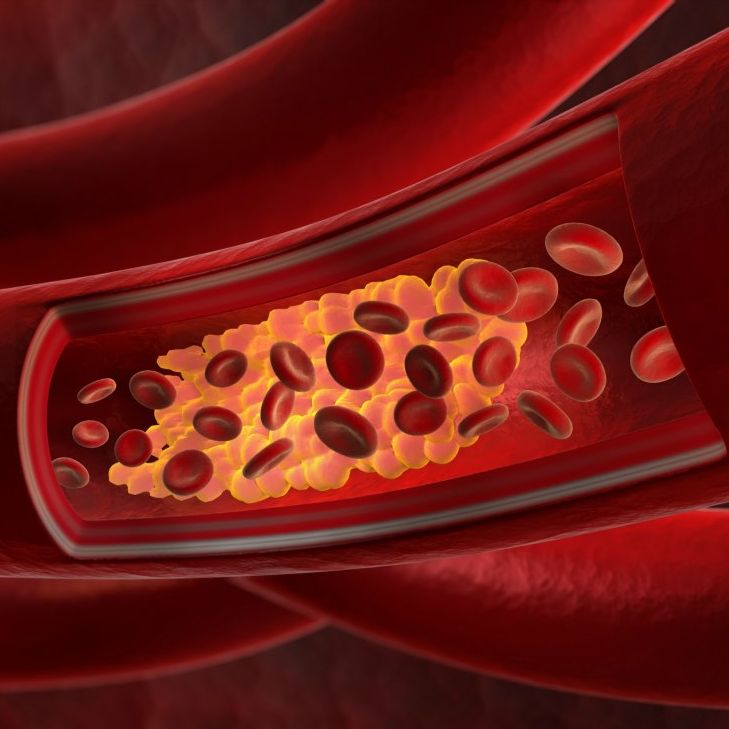Laboratory test for the cause of obesity
In the course of the laboratory test for the cause of obesity, we look at adrenal, thyroid, and pancreatic hormone abnormalities and metabolic parameters. Malnutrition and a sedentary lifestyle, which are often cited as the main causes of obesity, are not always the triggers. Hypothyroidism, hormonal imbalance, and metabolic disorders can all contribute to obesity.
What is obesity?
The prevailing view is that an individual is considered overweight when their body weight is 20% above the ideal body weight. Today, more than a quarter of the world’s population is affected by some form of obesity-related health problem caused by obesity. In more severe cases, we are talking about abnormal obesity, which can lead to more serious cardiovascular diseases, even premature death.
Laboratory test to determine the cause of obesity
TSH
TSH is a thyroid-stimulating hormone produced in the pituitary gland. In case of hypothyroidism or hyperthyroidism, its value may be too high or too low. The hormones produced in the thyroid gland, triiodothyronine (T3) and tetraiodothyronine (T4), are produced by the stimulatory stimulus exerted by TSH.
What causes low TSH levels?
Low TSH levels are usually caused by hyperthyroidism. TSH levels may decrease during pregnancy and as a result of taking certain medications (e.g. antihypertensives).
What causes high TSH levels?
High TSH levels are mostly caused by hypothyroidism, which is possibly the underlying disorder of obesity.


Cortisol
Cortisol is a steroid hormone produced in the adrenal cortex. It plays an important role in regulating blood pressure, digesting food, and physiologically adapting to stressful situations. In the liver, it promotes the breakdown of starch (glycogen) into glucose, the breakdown of fats and proteins, and the production of sugars from amino acids (gluconeogenesis). It has antiallergic and anti-inflammatory effects. Cortisol levels are normally high in the morning and then decrease during the day.
What can cause high cortisol levels?
Excessive cortisol levels can also be a sign of Cushing’s syndrome. The disease develops as a result of benign or malignant tumours in the body that produce too much cortisol. Its main symptoms are obesity, irregular menstrual bleeding, high blood pressure, round face, fatigue, and a drastic decrease in concentration.
DHEA
Dehydroepiandrosterone is a hormone produced in the adrenal cortex. DHEA promotes the production of hormones such as testosterone (male sex hormone) and oestrogen (female sex hormone). DHEA levels in the body are highest in early adulthood and then decrease steadily with age.
Blood lipids (cholesterol, HDL cholesterol, triglyceride, LDL cholesterol, non-HDL)
Cholesterol
Cholesterol is a compound that is produced by the liver in the largest amount in the human body, but some of it is taken in with food. It plays a significant role in the structure of cell membranes. The cholesterol produced by the liver is essential for the production of bile.
HDL cholesterol
It is also referred to as “protective” or “good” cholesterol because it transports cholesterol deposited in the blood vessel wall back to the liver where it is broken down.
LDL cholesterol
It is mostly known as “bad” cholesterol. It transports cholesterol from the liver to the cells. When the body accumulates more cholesterol than it needs, the excess cholesterol is deposited in the walls of the blood vessels.


What does poor cholesterol level mean?
Low HDL cholesterol levels contribute significantly to the development of atherosclerosis and cardiovascular disease.
Elevated LDL-cholesterol and total cholesterol levels reduce the elasticity of the vessel wall (cholesterol deposition in the vessel wall). Too high a value significantly increases the risk of atherosclerosis and myocardial infarction.
What causes high cholesterol levels?
High cholesterol levels are caused by
Malnutrition (regular consumption of high cholesterol foods)
Certain medicines (e.g. antihypertensives)
Pregnancy
Inherited metabolic disease
Sedentary lifestyle
Stress
Triglyceride
Triglycerides (neutral fats) are the main components of dietary fats (e.g. butter, lard) that provide our bodies with energy. While some of the fat that enters the body covers energy needs, the remaining, unused portion is stored in adipose tissue. In case of excessive carbohydrate intake, our own body also produces triglycerides.
Ideally, triglyceride is only present in a small amount in the blood.
What can cause high triglyceride levels?
Malnutrition (too much carbohydrate and fat, little protein)
Obesity
Thyroid diseases (underfunction, overactivity)
In case of diabetes, high blood sugar is accompanied by an increase in triglyceride levels
Taking certain medicines
Excessive alcohol consumption
Pancreatitis
Inherited metabolic disease


Uric acid
Uric acid is a breakdown product of purine compounds, which leaves the body with urine. The average daily uric acid excretion is normally 150-250g. Uric acid is poorly soluble in water and can crystallize in the kidneys, leading to kidney stones.
What may be behind the high uric acid levels?
Consumption of foods high in uric acid (e.g. red meats)
Diabetes
Kidney diseases
Taking diuretics
Metabolic diseases
Congenital metabolic disorder
What may be behind the low uric acid levels?
Excessive vitamin C intake
Excessive diet
Insulin resistance test
In case of insulin resistance test, an oral glucose tolerance test is performed, in parallel with which the insulin level, the degree of secretion and its change are measured. The oral glucose tolerance test is important in diagnosing pre-diabetic conditions.
Oral glucose tolerance test should not be performed if a preliminary diagnosis of either type 1 diabetes or type 2 diabetes is possible.
Depending on the results of the laboratory test that examines the cause of obesity, we recommend visiting a diabetologist and an internal medicine specialist.
How do I prepare for the test?
A laboratory test to investigate the cause of obesity requires an empty stomach, due to changes in the daily rhythm of cortisol, sampling occurs between 8 and 10 a.m.
When is the result expected?
After the 3rd working day after the test.


